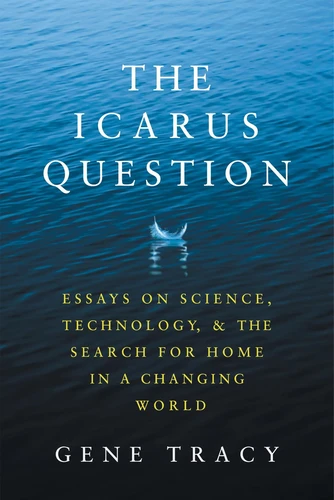The Icarus Question: Essays on Science, Technology, and the Search for Home in a Changing World
Par :Formats :
Disponible dans votre compte client Decitre ou Furet du Nord dès validation de votre commande. Le format ePub est :
- Compatible avec une lecture sur My Vivlio (smartphone, tablette, ordinateur)
- Compatible avec une lecture sur liseuses Vivlio
- Pour les liseuses autres que Vivlio, vous devez utiliser le logiciel Adobe Digital Edition. Non compatible avec la lecture sur les liseuses Kindle, Remarkable et Sony
 , qui est-ce ?
, qui est-ce ?Notre partenaire de plateforme de lecture numérique où vous retrouverez l'ensemble de vos ebooks gratuitement
Pour en savoir plus sur nos ebooks, consultez notre aide en ligne ici
- FormatePub
- ISBN8988207009
- EAN9798988207009
- Date de parution01/07/2023
- Protection num.pas de protection
- Infos supplémentairesepub
- ÉditeurRamified Press
Résumé
Daedalus, the great inventor of ancient myth, fashioned wings so that he and his son Icarus could escape imprisonment. But it all went awry when Icarus ignored his father's warnings and flew too close to the Sun. We know how that story ends-or do we? In The Icarus Question, physicist Gene Tracy offers reasons to hope that humanity's urge to transcend our limitations need not lead to inevitable disaster.
Weaving together memoir, history of science, mythology, astronomy, psychology and literary criticism, these essays are a point of departure for those curious to understand how science, technology and the culture at large can coevolve. From the necessity for empathy and wonder to act as correctives to climate denialism, to how science fiction can school us in the vulnerabilities that make us human, Tracy's probing and humane analysis calls on each of us not just to strive to understand the world, but to learn to love it better too.
Only then will our children have a chance at being able to make a home on that far shore we call 'the future'.
Weaving together memoir, history of science, mythology, astronomy, psychology and literary criticism, these essays are a point of departure for those curious to understand how science, technology and the culture at large can coevolve. From the necessity for empathy and wonder to act as correctives to climate denialism, to how science fiction can school us in the vulnerabilities that make us human, Tracy's probing and humane analysis calls on each of us not just to strive to understand the world, but to learn to love it better too.
Only then will our children have a chance at being able to make a home on that far shore we call 'the future'.
Daedalus, the great inventor of ancient myth, fashioned wings so that he and his son Icarus could escape imprisonment. But it all went awry when Icarus ignored his father's warnings and flew too close to the Sun. We know how that story ends-or do we? In The Icarus Question, physicist Gene Tracy offers reasons to hope that humanity's urge to transcend our limitations need not lead to inevitable disaster.
Weaving together memoir, history of science, mythology, astronomy, psychology and literary criticism, these essays are a point of departure for those curious to understand how science, technology and the culture at large can coevolve. From the necessity for empathy and wonder to act as correctives to climate denialism, to how science fiction can school us in the vulnerabilities that make us human, Tracy's probing and humane analysis calls on each of us not just to strive to understand the world, but to learn to love it better too.
Only then will our children have a chance at being able to make a home on that far shore we call 'the future'.
Weaving together memoir, history of science, mythology, astronomy, psychology and literary criticism, these essays are a point of departure for those curious to understand how science, technology and the culture at large can coevolve. From the necessity for empathy and wonder to act as correctives to climate denialism, to how science fiction can school us in the vulnerabilities that make us human, Tracy's probing and humane analysis calls on each of us not just to strive to understand the world, but to learn to love it better too.
Only then will our children have a chance at being able to make a home on that far shore we call 'the future'.



